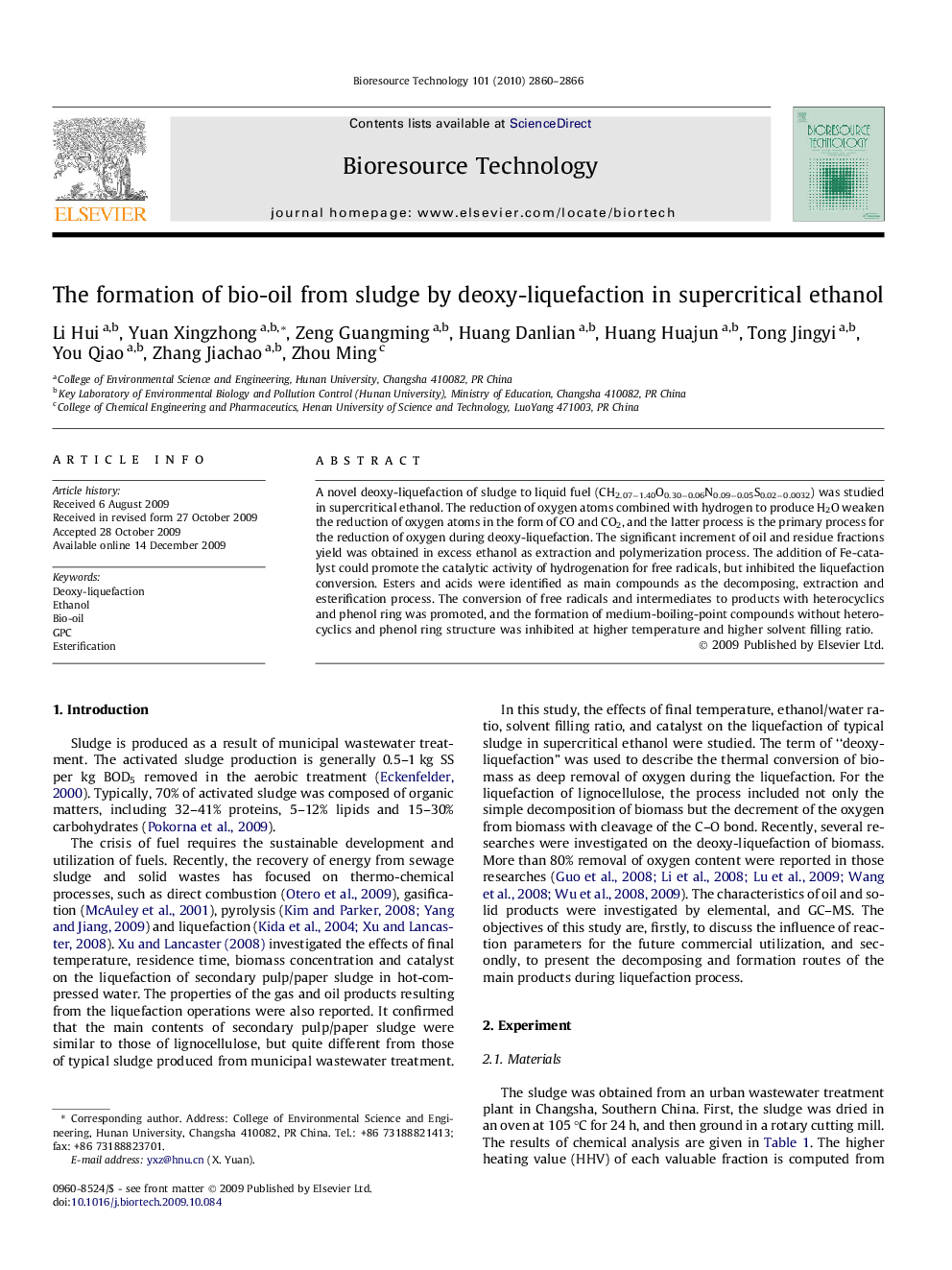| Article ID | Journal | Published Year | Pages | File Type |
|---|---|---|---|---|
| 683056 | Bioresource Technology | 2010 | 7 Pages |
A novel deoxy-liquefaction of sludge to liquid fuel (CH2.07−1.40O0.30−0.06N0.09−0.05S0.02−0.0032) was studied in supercritical ethanol. The reduction of oxygen atoms combined with hydrogen to produce H2O weaken the reduction of oxygen atoms in the form of CO and CO2, and the latter process is the primary process for the reduction of oxygen during deoxy-liquefaction. The significant increment of oil and residue fractions yield was obtained in excess ethanol as extraction and polymerization process. The addition of Fe-catalyst could promote the catalytic activity of hydrogenation for free radicals, but inhibited the liquefaction conversion. Esters and acids were identified as main compounds as the decomposing, extraction and esterification process. The conversion of free radicals and intermediates to products with heterocyclics and phenol ring was promoted, and the formation of medium-boiling-point compounds without heterocyclics and phenol ring structure was inhibited at higher temperature and higher solvent filling ratio.
